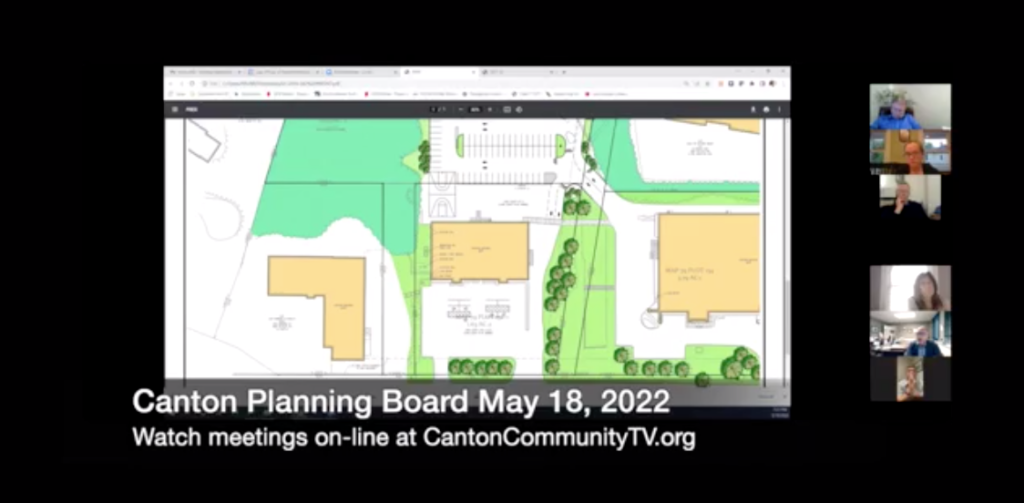Abutters voice concerns over JRC parking project
By Jay TurnerConcerned about the impact of a proposed parking lot expansion on their neighborhood and surrounding woodlands, a group of concerned abutters of the Judge Rotenberg Educational Center are now taking their fight to the Canton Planning Board.
Several residents of Autumn Circle and Hillsview Street, which is located in the rear of the JRC property on Turnpike Street, appeared via Zoom at the May 18 board meeting to voice their united opposition to the project, which calls for the addition of 87 new spaces to accommodate existing staffing needs along with a new stormwater management system as required by state law.
“Our group feels that this is an unreasonable incursion [and] that it doesn’t need to be approved, it doesn’t need to happen,” noted Juris Grauds, one of several neighbors who spoke at last week’s hearing. “It’s going to contribute noise to our neighborhood; it’s going to contribute light pollution to our neighborhood; it’s going to uproot a bunch of wetlands species … It’s just really unfortunate and it’s unnecessary.”
Grauds and several of his fellow neighbors strongly objected to the fact that the JRC’s plans would require the clearing of roughly three acres of land in order to gain less than an acre of parking — a staggering tradeoff, they argued.
They have also accused the applicant of hiding behind the so-called “Dover Amendment,” a section of the Mass. General Laws that exempts agricultural, religious and educational uses from certain zoning restrictions.
“There’s no question that they keep referring to the Dover Amendment and what they intend to do is abuse it to the maximum in this case,” said Paul Phalan, another Autumn Circle abutter.
Tom Houston, consulting engineer for the town of Canton, also cited the Dover Amendment as an apparent obstacle in the case, noting that the JRC has “either responded by correcting issues [of noncompliance] or else took the position that they did not have to comply because of the Dover Amendment.”
“I think fundamentally that’s where we stand,” said Houston.
Attorney Suzanne Matthews, who has been retained by some of the abutters, acknowledged the applicant’s legal right to provide parking for its employees and patrons but argued that there are several concerns with the JRC’s site plan application, from a lack of clarity over the number of existing parking spaces on the property to a general lack of willingness to submit to “reasonable” restrictions as part of the site plan review process — restrictions, she said, that are applicable to properties covered under the Dover Amendment.
“The center just says, ‘We need these [spaces],’” said Matthews. “There’s been no study, there’s been no material, there’s been no report or traffic management study that has been provided to the board to make that determination.”
Abutters also noted that the previous review by the Conservation Commission, which ultimately found in favor of the applicant, lasted several meetings and involved a thorough review by Houston, and they requested a similarly thorough process with the Planning Board and Zoning Board of Appeals, which is the ultimate permit granting authority for site plan requests.
Several members of the Planning Board also voiced concerns with the project, including Chairperson Patricia McDermott, who acknowledged the protections afforded by the Dover Amendment but still had issues with pedestrian and motorist safety and the lack of a planting schedule, among other concerns.
Representatives for the developer emphasized that a parking lot is an allowable use under the zoning bylaws and that the land clearing that is being proposed is a legal requirement due to stormwater management regulations. An attorney for the developer also stressed that they could “pretty easily” respond to many of the board members’ and abutters’ questions and are prepared to provide the information that is requested.
The Planning Board agreed to continue the matter at its next meeting on June 8.
Short URL: https://www.thecantoncitizen.com/?p=86774











